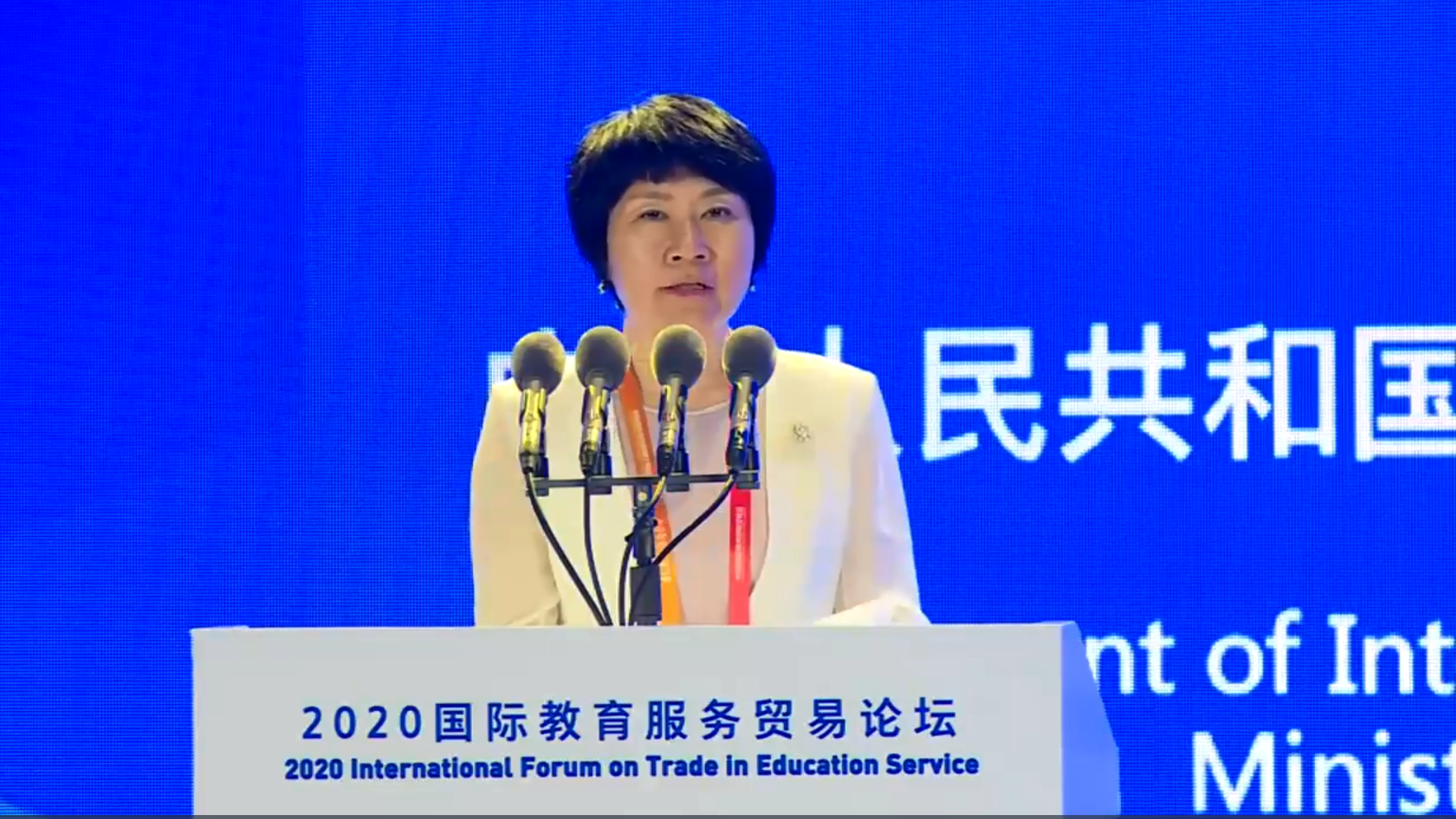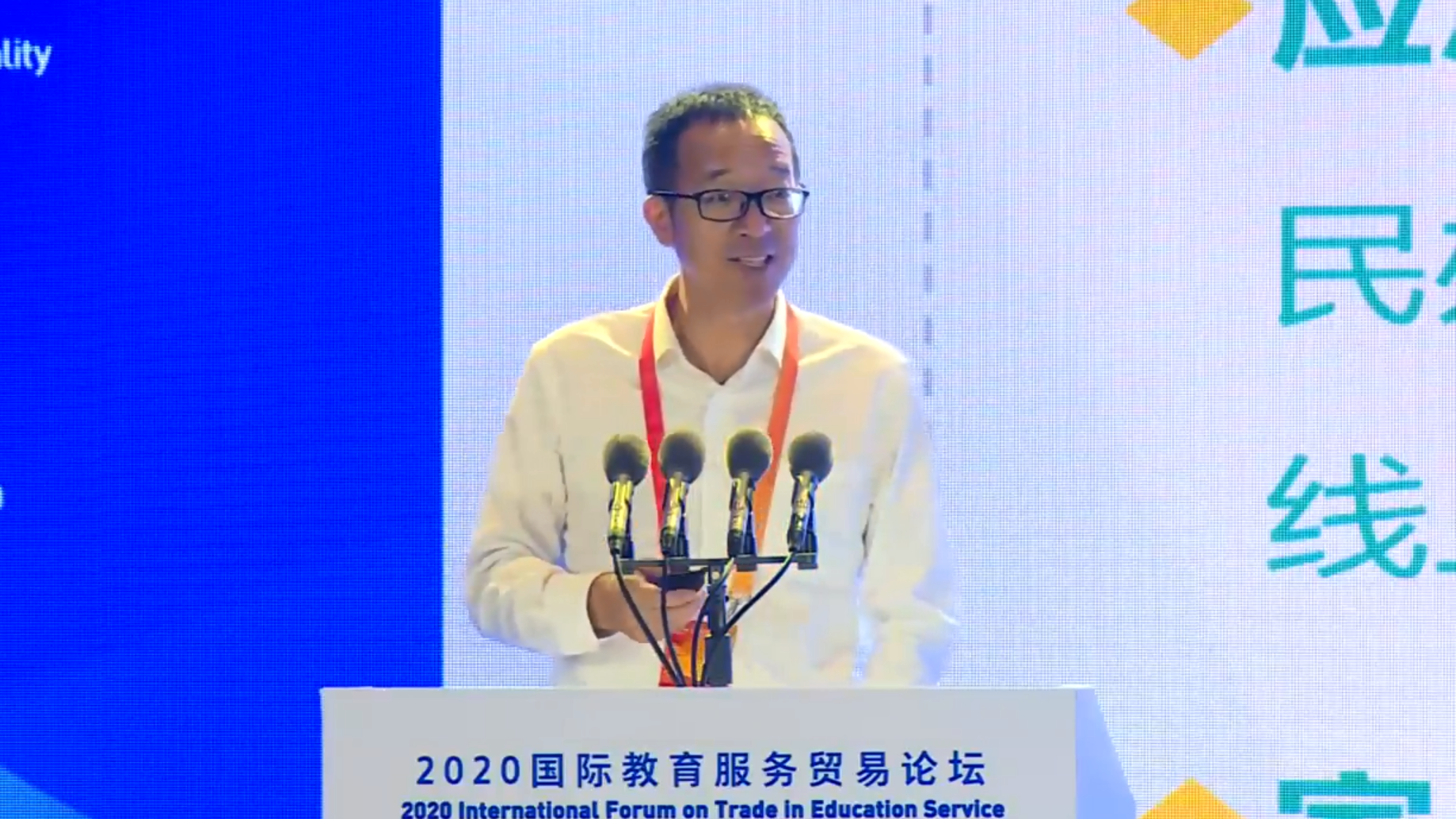As many countries across the globe are still on the hook due to the COVID-19 pandemic, fears of COVID-19 infection and uncertainty about the resumption of onsite classes amid the pandemic and beyond are now halting Chinese students' studying abroad plans, as well as affecting the education industry's lucrative business. And finding a new way of studying abroad has become a new challenge many Chinese parents face.
China is the world's largest source of international students, with about 1.4 million Chinese now studying abroad, Liu Jin, director of the Department of International Cooperation and Exchanges of the Ministry of Education (MOE) said at an education forum at the 2020 China International Fair for Trade in Services (CIFTIS) in Beijing. Liu said China has established educational cooperation and exchanges with 188 countries and regions and 46 international organizations and has forged agreements with 54 countries on mutual recognition of qualifications and academic degrees in higher education.

Liu Jin, director of the Department of International Cooperation and Exchanges of the Ministry of Education, gives a speech at an education forum at the 2020 China International Fair for Trade in Services in Beijing. /CIFTIS
Liu Jin, director of the Department of International Cooperation and Exchanges of the Ministry of Education, gives a speech at an education forum at the 2020 China International Fair for Trade in Services in Beijing. /CIFTIS
According to Liu, China has seen an increasing number of foreign students studying in the country, and the "Silk Road" scholarship program has helped train talents for countries participating in the Belt and Road Initiative.
"In the future, China will further deepen cooperation and exchanges with other countries in the education sector and encourage more students coming to the country to study despite the impact of the COVID-19 pandemic," she said.
A new approach and a new concern
The COVID-19 pandemic has affected educational systems worldwide, leading to a closure of numerous schools, universities and colleges, and some global training organizations. Under such circumstances, a new approach emerged – many colleges and universities have worked diligently and creatively to encourage students to complete their academic programs online.

Yu Minhong, CEO of education company New Oriental, speaks at the 2020 International Forum on Trade in Education Service in Beijing. /CIFTIS
Yu Minhong, CEO of education company New Oriental, speaks at the 2020 International Forum on Trade in Education Service in Beijing. /CIFTIS
"In the face of new challenges, the COVID-19 pandemic has actually triggered people's reflection on the education sector and also brought new opportunities," Yu Minhong, CEO of education company New Oriental, said at the forum, adding that tens of thousands of offline education institutions have closed down while the development of online education institutions has accelerated.
"The Online-Merge-Offline (OMO) mode, that is, the integration of online and offline teaching will become a mainstream of the education industry due to the current situation," Yu noted.
Through the cooperation with education abroad program providers and international university partners, many institutions have adopted academic standards and practices to accommodate an unprecedented number of students whose spring and academic-year education abroad programs were cut short, and with more online courses.

One of the education agencies in Beijing. /VCG
One of the education agencies in Beijing. /VCG
However, the workaround has created a new concern: As more colleges or universities stay online, more students are demanding tuition cuts, saying they deserve tuition discounts because the online courses are not worth the full cost. Additionally, although prospective students are interested in studying their degree online, their concern about the quality and recognition of a virtual degree weigh heavily on them.
With more concerns popping up, Yu stressed that while the new form of education is irresistible, we should not forget the purpose of education.
(Cover photo designed by Chen Yuyang)